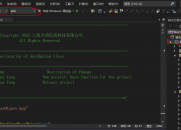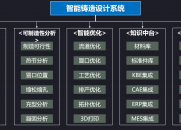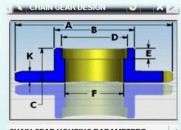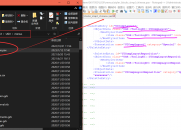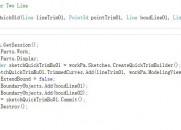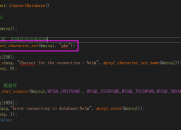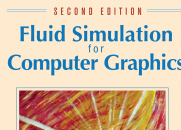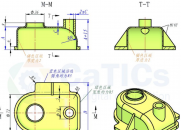请使用QQ关联注册PLM之家,学习更多关于内容,更多精彩原创视频供你学习!
您需要 登录 才可以下载或查看,没有账号?注册

x
由于查找是使用最为频繁的功能之一,string 提供了非常丰富的查找函数。其列表如下:" r) [" N7 D! B: S' ]3 Q0 x; u
函数名 | 描述 | | find | 查找 | | rfind | 反向查找 | | find_first_of | 查找包含子串中的任何字符,返回第一个位置 | | find_first_not_of | 查找不包含子串中的任何字符,返回第一个位置 | | find_last_of | 查找包含子串中的任何字符,返回最后一个位置 | | find_last_not_of | 查找不包含子串中的任何字符,返回最后一个位置 |
+ w, I7 z* R4 q: j7 j/ n4 z1 i! j9 _5 e* J
以上函数都是被重载了4次,以下是以find_first_of 函数为例说明他们的参数,其他函数和其参数一样,也就是说总共有24个函数。
# s# Q* f8 f7 L
/ i" [! v0 e! r3 r' A, w, K) g/ P; h0 b% U H* V0 R
- size_type find_first_of(const basic_string& s, size_type pos = 0)
- size_type find_first_of(const charT* s, size_type pos, size_type n)
- size_type find_first_of(const charT* s, size_type pos = 0)
- size_type find_first_of(charT c, size_type pos = 0)
/ }& w' ^, k& b. J
1 |( K! i6 z& U6 T" n2 @3 Q6 ]+ Esize_type find_first_of(const basic_string& s, size_type pos = 0)size_type find_first_of(const charT* s, size_type pos, size_type n)size_type find_first_of(const charT* s, size_type pos = 0)size_type find_first_of(charT c, size_type pos = 0) & g" w9 v4 d( h# a
. A) P& R) M8 P, f' P所有的查找函数都返回一个size_type类型,这个返回值一般都是所找到字符串的位置,如果没有找到,则返回string::npos。有一点需要特别注意,所有和string::npos的比较一定要用string::size_type来使用,不要直接使用int 或者unsigned int等类型。其实string::npos表示的是-1, 看看头文件:
" L1 d1 g- K- v) l
/ S; R3 }' ]! n8 l/ F- |; u. B% V9 L
- template <class _CharT, class _Traits, class _Alloc>
- const basic_string<_CharT,_Traits,_Alloc>::size_type
- basic_string<_CharT,_Traits,_Alloc>::npos
- = basic_string<_CharT,_Traits,_Alloc>::size_type) -1;
& M, @" r" A& g6 c* ~
' [$ t* `- ^+ ^' ~; qtemplate <class _CharT, class _Traits, class _Alloc> const basic_string<_CharT,_Traits,_Alloc>::size_type basic_string<_CharT,_Traits,_Alloc>::npos = basic_string<_CharT,_Traits,_Alloc>::size_type) -1; + X- C2 n0 @# K6 h$ q* z ?- f
7 `( F/ W5 p; \' a4 n! E. Nfind 和 rfind 都还比较容易理解,一个是正向匹配,一个是逆向匹配,后面的参数pos都是用来指定起始查找位置。对于find_first_of 和find_last_of 就不是那么好理解。 find_first_of 是给定一个要查找的字符集,找到这个字符集中任何一个字符所在字符串中第一个位置。或许看一个例子更容易明白。 有这样一个需求:过滤一行开头和结尾的所有非英文字符。看看用string 如何实现:
5 c& q! ?6 @+ h" q: Z
& C. P2 F' u) g. @( j: {- #include <string>
- #include <iostream>
- using namespace std;
- int main(){
- string strinfo=" //*---Hello Word!......------";
- string strset="ABCDEFGHIJKLMNOPQRSTUVWXYZabcdefghijklmnopqrstuvwxyz";
- int first = strinfo.find_first_of(strset);
- if(first == string::npos) {
- cout<<"not find any characters"<<endl;
- return -1;
- }
- int last = strinfo.find_last_of(strset);
- if(last == string::npos) {
- cout<<"not find any characters"<<endl;
- return -1;
- }
- cout << strinfo.substr(first, last - first + 1)<<endl;
- return 0;
- } " e2 ~$ k+ u% a) h
) \0 O: r! s% T& p# X2 _, x#include <string>#include <iostream>using namespace std;int main(){ string strinfo=" //*---Hello Word!......------"; string strset="ABCDEFGHIJKLMNOPQRSTUVWXYZabcdefghijklmnopqrstuvwxyz"; int first = strinfo.find_first_of(strset); if(first == string::npos) { cout<<"not find any characters"<<endl; return -1; } int last = strinfo.find_last_of(strset); if(last == string::npos) { cout<<"not find any characters"<<endl; return -1; } cout << strinfo.substr(first, last - first + 1)<<endl; return 0;}
; h2 H( h- E2 k3 E4 l I/ }( ^
* l" a' C4 b3 q7 r3 l1 `& j) O% X5 o3 A& j% U9 |( V/ \, I
; d; G- E* c. \, n |


